Porfirio Diaz: how a democrat became a dictator and led the country to revolution
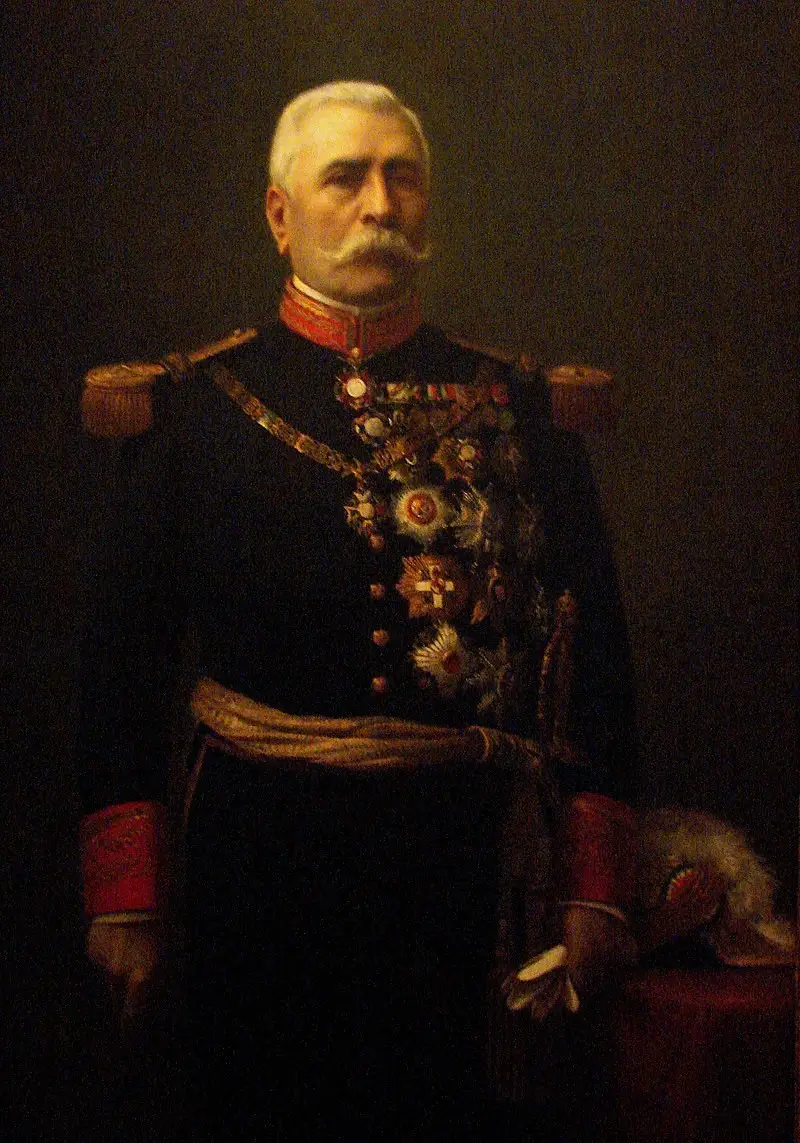
This ruler came to power under democratic slogans, but quite quickly the love of power outweighed his former beliefs. When he could not be re-elected to the next term, he installed a puppet president in his place for 4 years, then changed the country's constitution to suit himself, as a result of which he was re-elected to the presidency many times. He increased the presidential term from 4 to 6 years, persecuted the opposition, enriched his oligarch friends, and plunged the population into hopeless poverty. Not only presidential elections, but also the laws themselves turned into a mere formality under him, which contributed to an unprecedented increase in corruption. His name is Porfirio Diaz.
How he came to power, what helped him stay in it for more than three decades, and most importantly, how this ruler ended up and what consequences his rule had for the country, we will tell you.
The way to power
The future dictator of Mexico was born in 1830 in the city of Oaxaca into the family of a blacksmith. His father died when Porfirio was three years old. As a child, he worked as a carpenter and shoemaker, graduated from school and entered the seminary, hoping to become a priest. This choice was not unusual: in Mexico at that time, a person from the lower classes could only make a career either in the church or in the army.
However, pretty soon young Porfirio realized that being a priest was not his calling. At the age of 16 he enlisted in the army. Just at this time, the Mexican-American War began, which lasted two years. But the young man was not destined to take part in its battles; all this time he was in the rear doing repairs. weapons.
After the war, Diaz entered the Institute of Sciences and Arts of Oaxaca, where one of his teachers was Benito Juarez, the future president of Mexico. For some time, Diaz taught Latin, changed several professions, until in 1854 he received a lawyer's diploma.
When three years later another war began in Mexico, this time a civil one between liberals and conservatives, Diaz again joined the army. He fought on the side of the liberals, quickly rose in rank, took part in 12 battles, and within a few years rose to the rank of colonel. The Civil War ended in 1861 with the complete victory of the liberals, but peaceful life was still far away. The defeated conservatives did not resign themselves and wanted to take revenge with the help of foreign armies. Taking advantage of the internal turmoil, French, British and Spanish invaders invaded the country. The war with them lasted another six years.
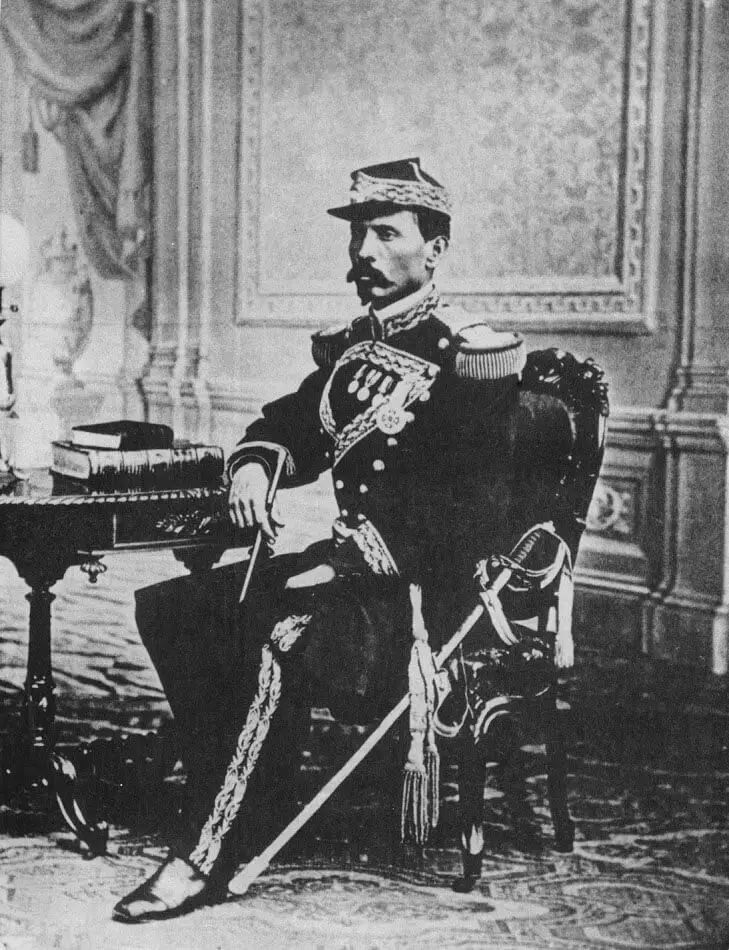
Porfirio Diaz in 1861
Already in 1862, 32-year-old Diaz became a brigadier general. He wins, which contributes to his fame and popularity. In 1865, he was captured by the French and was able to escape, which only increased his number of supporters. Finally, at the final stage of the war in 1867, Diaz's troops took the capital of the country, Mexico City.
Diaz's political ambitions appeared during the war. They appeared openly for the first time in 1871, when Diaz attempted a rebellion against the ruling President Juarez, his former teacher. The attempt ended in failure, a few months later Juarez died, and Diaz received forgiveness.
But Diaz had no intention of stopping. A new uprising in 1876 against Juárez's successor, President Sebastian Lerdo, was already successful: Lerdo was removed, and Díaz legalized his seizure of power a few months later by winning the presidential election.
Porphyriat
From this moment on stories Mexico began an era named after the new president - the Porfiriat. Initially, Diaz tried to show himself as a greater liberal and democrat than his predecessors. Thus, he himself introduced an amendment to the country’s constitution, according to which one person could not hold the post of president for more than one term. This only added to his popularity among the people. A hero of two wars, who also voluntarily limited his power - what other candidate could be better?
When he came to power, Diaz was 47 years old. It is possible that he himself thought then that he would only restore order in the country and cede power to others. First of all, the new president improved relations with the United States, attracted many American and European investors to the country, which contributed to economic growth, and repealed a number of anti-clerical laws, which brought him the support of Catholic priests.
At the end of 1880, Diaz, since he could not be re-elected for another term under the constitution, ceded the presidency to his ally Manuel Gonzalez. During the 4 years of Gonzalez's reign, corruption in the country reached unprecedented proportions, so in 1884 Diaz returned to the presidency, welcomed by the population. The necessary amendments were again made to the constitution, and Diaz was able to be re-elected for further terms. And in 1904, he increased the presidential term from 4 to 6 years.
Democratic institutions were formally preserved. Diaz’s people constantly won victories in parliamentary elections; there was an “opposition” in the country in the person of Nicolas Zúñiga. Zúñiga was distinguished by eccentric behavior, few people took him seriously, so Diaz understood perfectly well that Zúñiga had no chance of winning the election. Those who had similar chances were forced to flee the country.
During the Diaz years, Mexico experienced economic growth. New enterprises appeared in the country, foreign investments came in, railways were built, production of coffee, sugar, and cotton increased, which were exported. However, only a few dozen oligarchic families - friends and associates of Diaz - were able to benefit from all this. They also enriched themselves through the extraction of minerals - gold, silver and copper. Oil production has also increased significantly.
All this brought fabulous profits to the oligarchs. The vast majority of the population continued to become poor. 96% of rural residents did not have land and became farm laborers. The country was overflowing with beggars, and things were bad in the areas of education and medicine, which Diaz did not consider necessary to develop. In 1910, only 19% of Mexicans were literate. Infant mortality was 400 children per 1000. 50% of the total housing stock were shacks - one-room dwellings without water, electricity or sewerage. Since medicine was in a state of disrepair, epidemics of smallpox, typhus, malaria, dysentery and other diseases were frequent in the country.
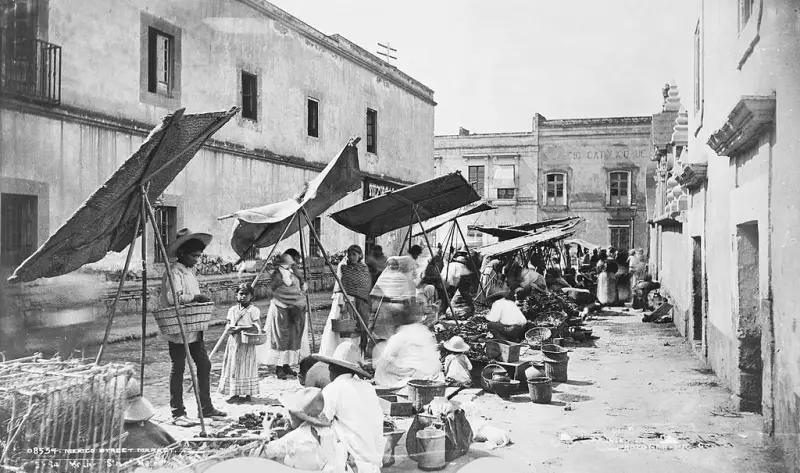
Market in Mexico City. 1885
Against this already sad background, the life of the workers was especially unenviable: they worked 12 hours a day and 7 days a week. Quite often they were paid not in money, but in stamps, which were accepted only in factory shops or landowners' stores. About a quarter of the workers were women, who were paid half as much as men. Alcoholism was widespread both among workers and among peasants.
The army and police were entirely under the control of Diaz, and the number of mounted gendarmerie (rurales) increased several times, which successfully suppressed scattered and unorganized peasant uprisings. Many criminals also appeared among the gendarmes.
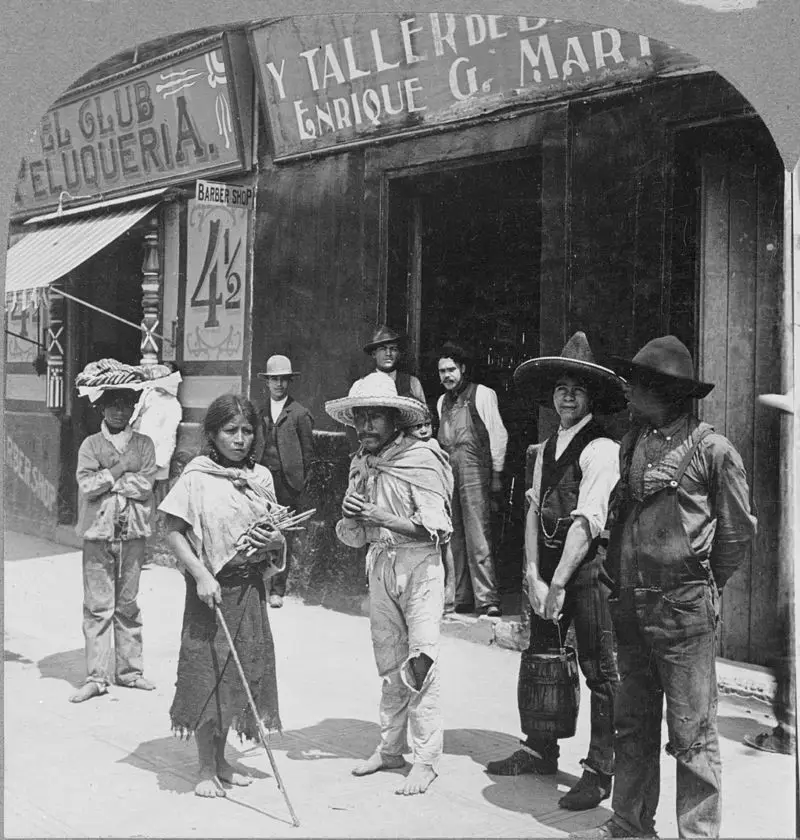
Mexican poor. 1906
Diaz allowed his friends to enrich themselves, but he did not forget himself. He acquired many estates, collected weapons and paintings, and loved ostentatious luxury: surviving photographs from his saloon carriage resembled the home of a gypsy baron. As the famous aphorism goes, absolute power corrupts absolutely.
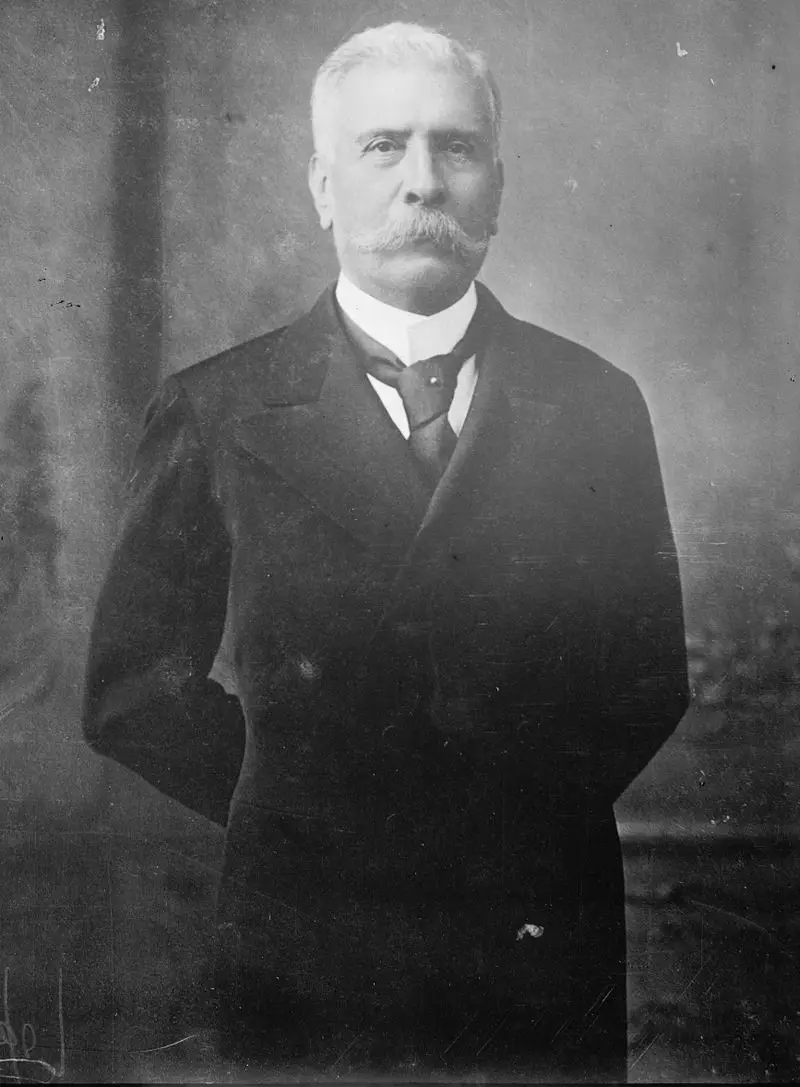
Porfirio Diaz in 1907
In 1908, when Diaz was already 78 years old, he announced that seven presidential terms were enough and he would not run for the next one. However, his closest supporters immediately began a struggle for power, having long been waiting for the “old man,” as they called him, to leave. In this situation, in 1910, Diaz broke his own word and was re-elected for another term. Although elections in Mexico have long been a farce, this time the fraud was such that it caused mass outrage throughout the country. The dissatisfied were led by the opposition candidate Francisco Madero, whom, by the way, initially no one took seriously either.
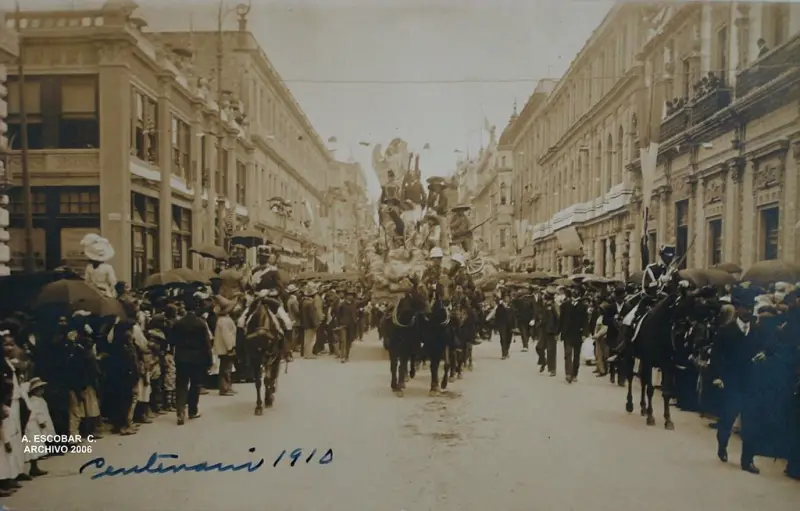
Parade in Mexico City. 1910
A revolution and civil war began in the country, and various bandits and partisan leaders with the aura of “people's defenders” like Pancho Villa began to play an increasingly important role. In this situation, 81-year-old Diaz was no longer able to continue his reign. In May 1911, he abdicated power and immediately fled first to Spain and then to Paris. There he died four years later, surrounded by plundered wealth, but cursed in his homeland by millions of compatriots.
Just a couple of weeks after his flight, the rebel army entered Mexico City, greeted by the joyful cries of hundreds of thousands of citizens.
The Mexican Revolution and Civil War, which began in 1910 due to widespread popular discontent with Diaz's rule, lasted 10 years. During its course, up to 2 million military and civilian people died, which was a huge figure for the relatively small Mexico, whose entire population at that time barely reached 15 million. The revolution left no stone unturned from the Porfiriat.
In modern Mexico, the name of Porfirio Diaz is forgotten, not a single street is named after him, and his remains still rest in one of the cemeteries in Paris. Who knows, perhaps if he had resigned after his first term, today there would be monuments to him all over Mexico, and the 2 million people who died during the civil war would live to old age.
Information